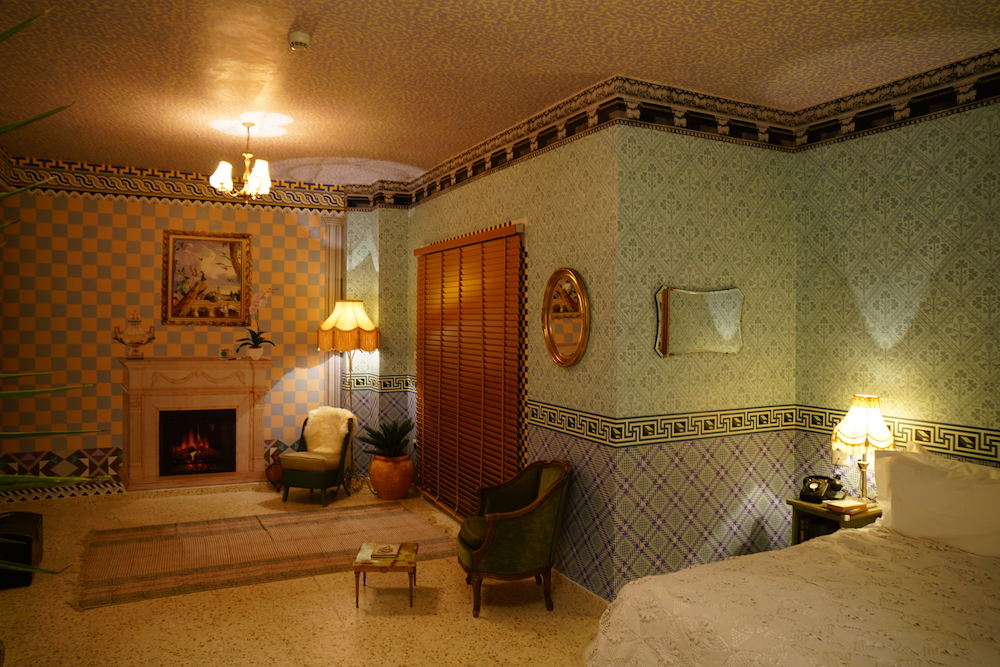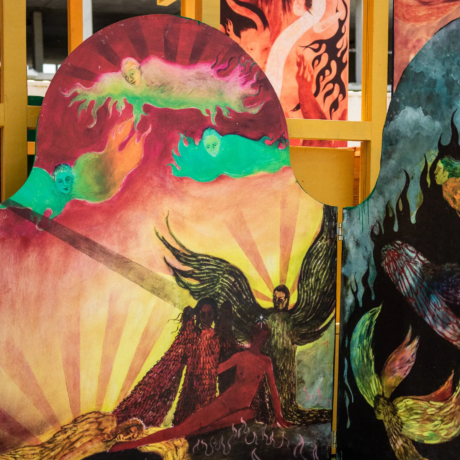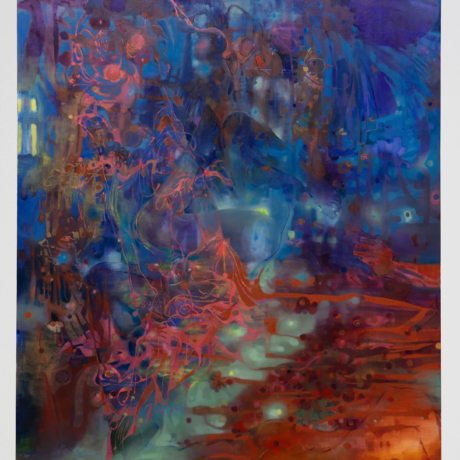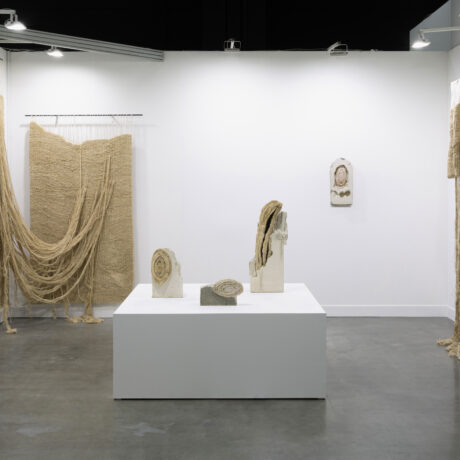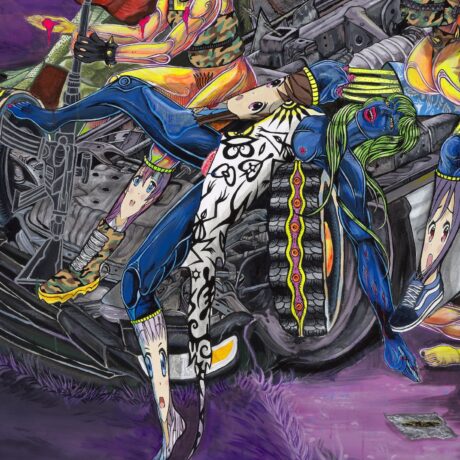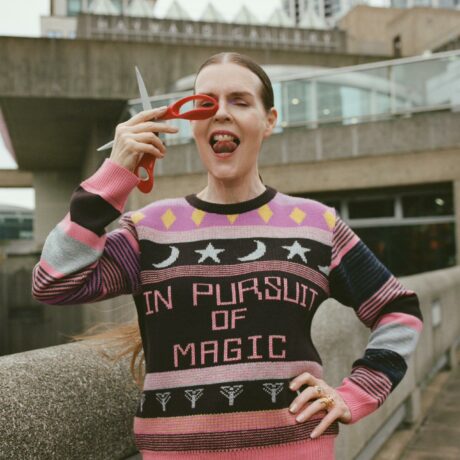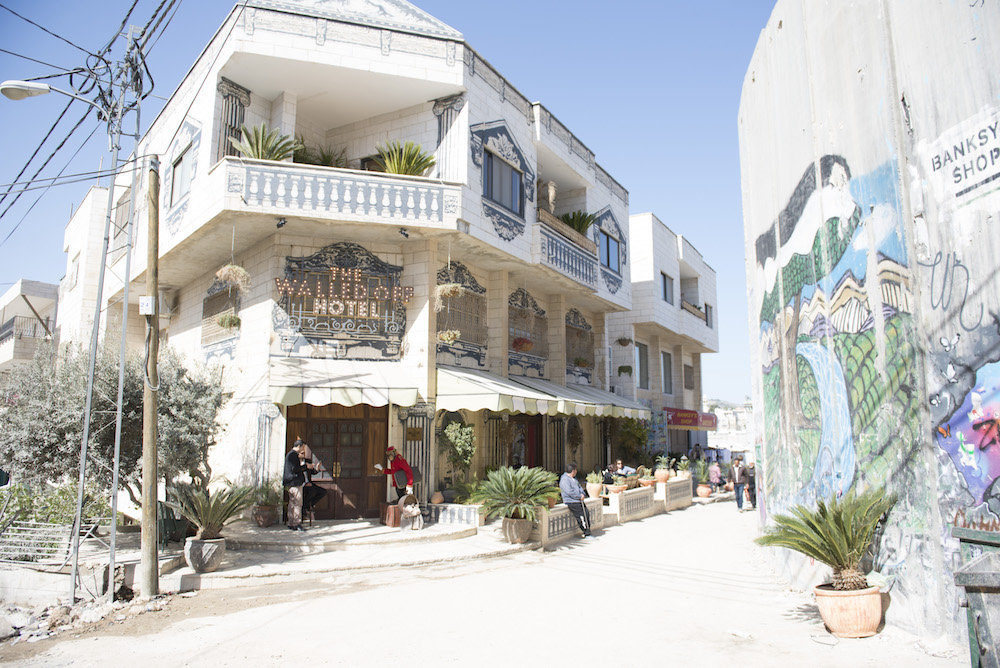
A gun grazed my bare knee as I sat on the bus from the Red Sea to the Dead Sea. It was swinging nonchalantly from the shoulder of a passing Israeli soldier, around twenty years old and wearing sunglasses. I shifted uncomfortably in my seat and tutted passive aggressively under my breath in response to this uncivilised state of things. Twenty-year-olds with guns! Soldiers on public buses! Wearing sunglasses! A few hours later, as the bus sat in the middle of the scorching desert, the tire burst from the heat, I watched a boy of no more than ten putting a plastic bag over his head as his guardian swiped, nonplussed, at his iPhone. (The boy lived, thanks to his own realisation this was perhaps not the best idea on a boiling bus.)
My response to these things made me realise how British I really am. As much as I like to feel that I am a deracinated, non-affiliated “citizen of the world”, what that really means is that I have an ethnically ambiguous appearance and a passport that allows me to travel without issue to any country in the world. In my world, parents should notice when their children are trying to self-suffocate and twenty-year-olds should not have guns. This belief is based on the idea that where I come from these things don’t happen and where I come from is a progressive, peaceful place where justice, rationality, and order prevails. Er…
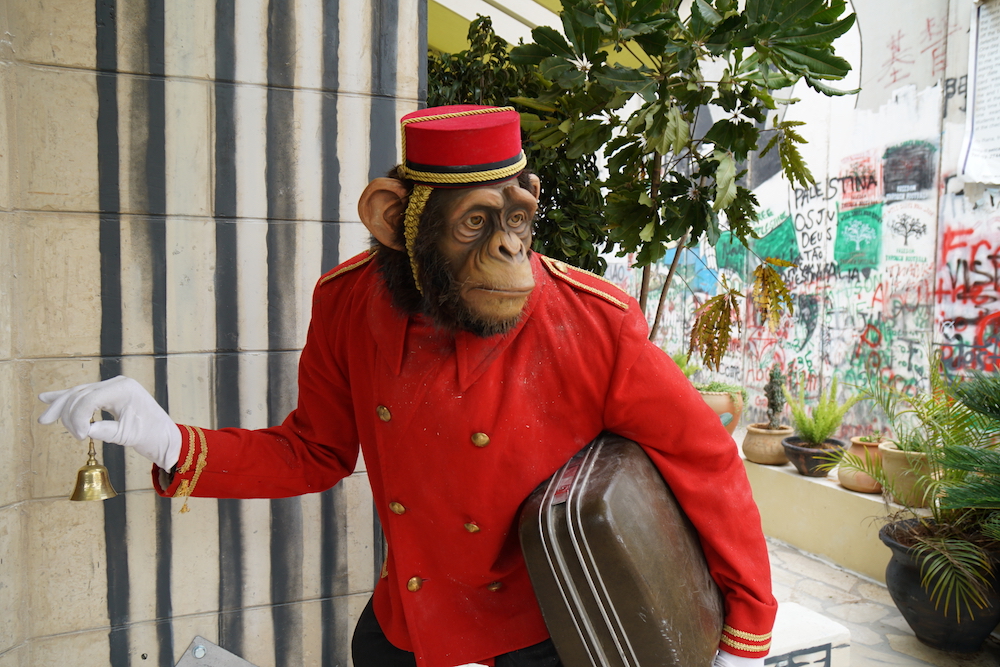
These two incidents on the bus from South Sinai to Bethlehem reveal more about the reality of the Israeli occupation than Banksy’s new art hotel in the West Bank city, opened in March. It is very problematic to make political statements about situations that you are not living in and it is very controversial to try to be ironic and make art about conflicts that are still very much going on, right outside the door. “Do you want to see the real occupation?” demanded a local driver who confronted us as we stepped off the bus. “I’m not interested in going to the Banksy hotel, it’s for money.”
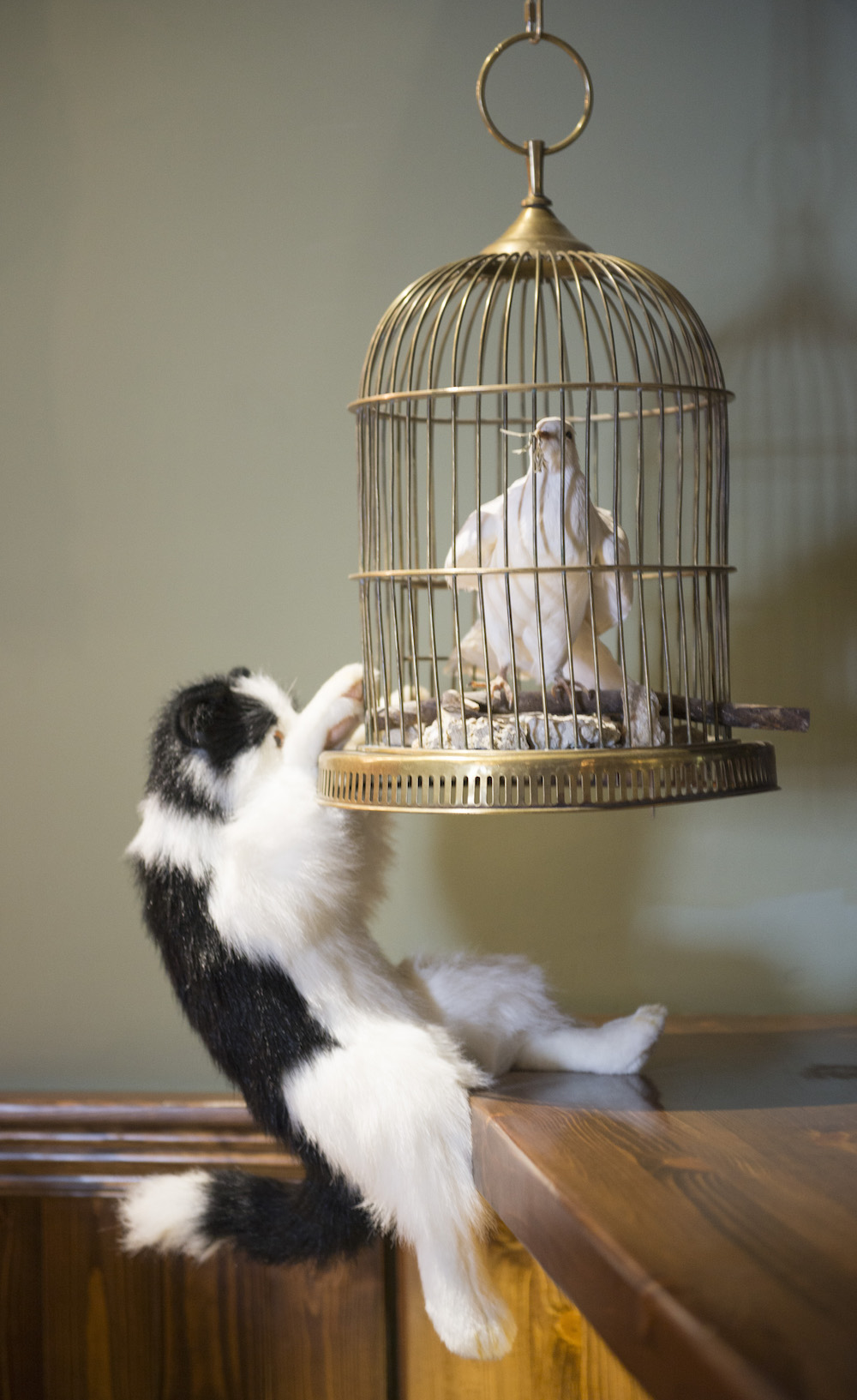
It’s not that opening a hotel in Bethlehem is such a novelty. The local economy depends heavily on tourism—mostly Christians going to the Church of the Nativity—and there are thirty hotels in the city of only 25,000 inhabitants. Even Banksy has his own mini-economy here, with a cluster of bootleg shops selling knock-off merchandise and art (including one next door to the hotel). The problem with the Walled Off is that sticking a post-colonial hotel in a city that is still hemmed in by colonialism promotes the idea of “occupation tourism”—come and see how these poor people live in this terrible place with no hope!
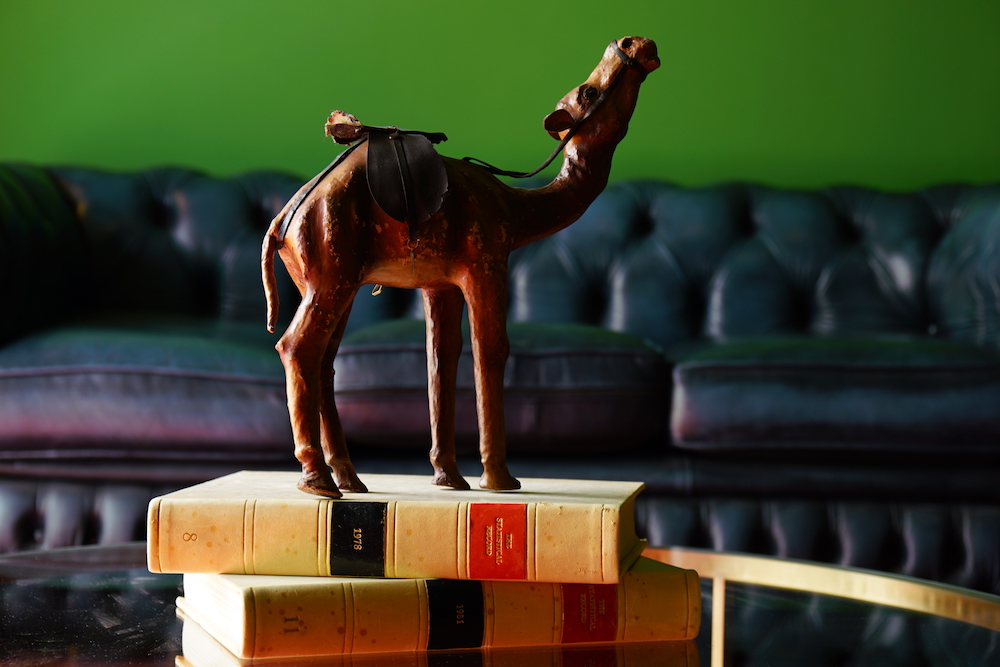
As promised by all the international press that Banksy’s business venture generated when it opened, you get to the hotel by walking beside a section of the eight-metre-high Israeli West Bank Barrier, constructed in September 2000 during the Second Intifada by the Israeli government. It’s an overpowering, claustrophobic and aggressive construction that is deeply affecting. It’s a relief, then, when you enter Banksy’s boutique hotel, decked out in British colonial style, with original artworks by the artist on the walls, a piano, lace doilies and bone china, upon which afternoon tea is served by Palestinian employees dressed in red waistcoats. More about the tea later.
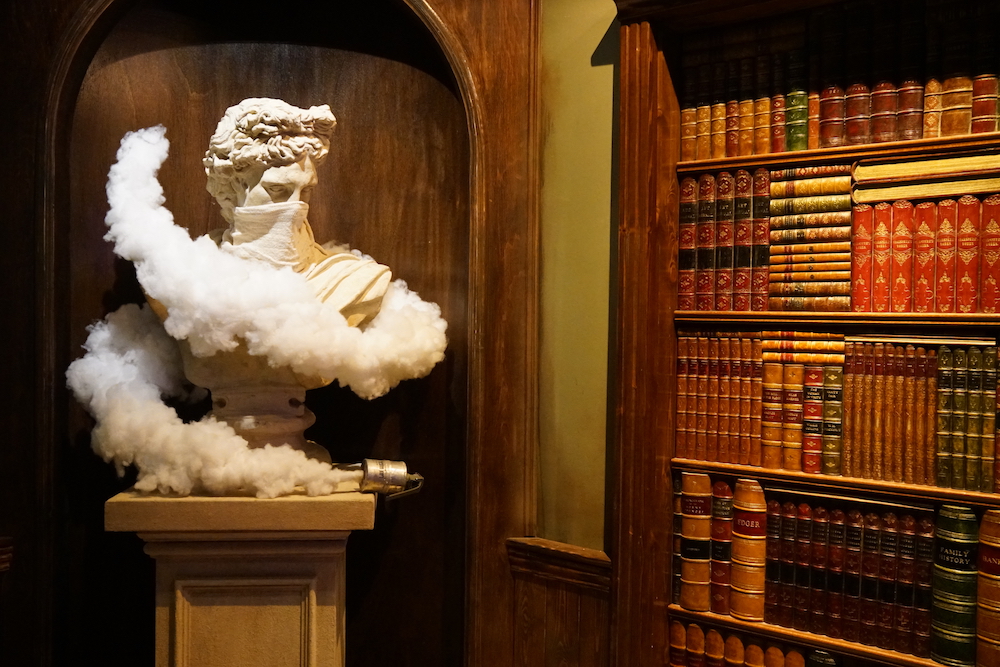
So far, so ironic, except that, it’s really not. Even Banksy insists this is “not a joke” and, with its irresistible gimmick of providing rooms with the “worst view in the world”, his offering includes a Presidential Suite for $965 a night. The profits, eventually, will go to local projects, the hotel’s website enigmatically suggests.
“We know that we are part of the problem, but is that going to make life any easier for the people who live here?”
On the ground floor there is a museum that continues the colonial theme, poking fun at the “jolly old British” and their cunning involvement in carving up this piece of land, presenting an overload of information about the political history of the West Bank in an unflinchingly bias manner. It is odd to see ID cards that are still in use museumified in vitrines, to read about events that happened less than a year ago in a timeline. In the usual fashion of discussions on the conflict, whether in Arabic, Hebrew, or English, there is no glimmer of hope, and you come out feeling overwhelmed and powerless—not ready to go out and make a change. Instead, you can flump down on a leather sofa and eat a slice of Victoria sponge cake to console yourself. This, if anything, is the only thing that really makes you feel, especially as a foreigner (and this all seems intended for foreign, especially British, visitors) awkward. Sitting and reflecting on my own privilege was a painful thing, but does it really help anything? We know that we are part of the problem, but is that going to make life any easier for the people who live here? And after I pay up and go back—like Banksy has—what’s the point of it?
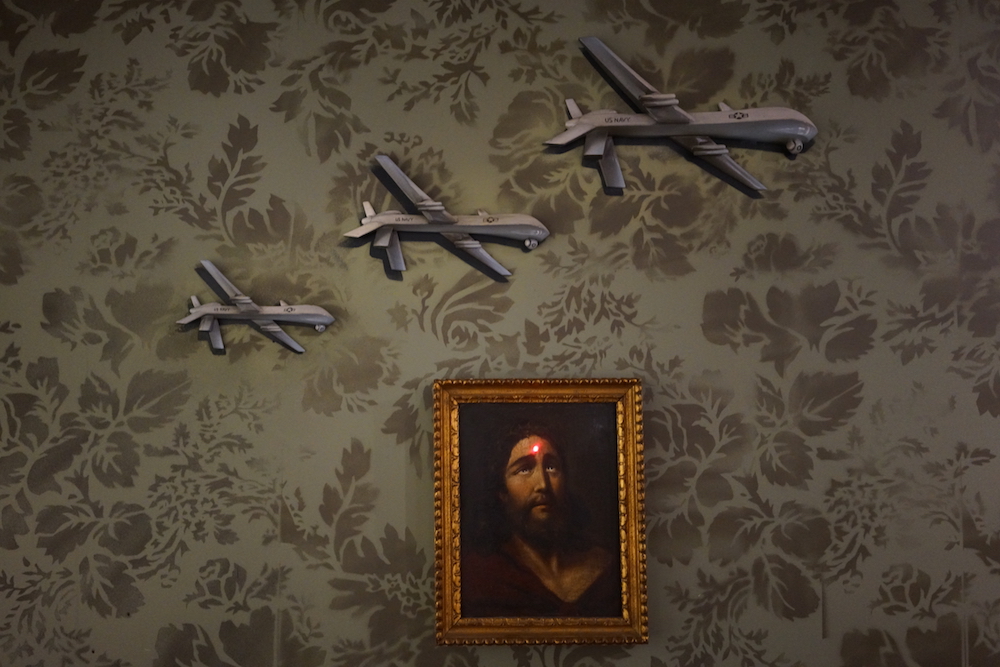
Upstairs, there is an autonomous gallery, dedicated to showing Palestinian artists, under the direction of Dr Housni Alkhateeb Shehada, a Professor of History and Theory based in Israel. It’s the only place that seems to create a dialogue with the local environment and situation, and it’s the only space for Palestinian perspective in the hotel. It reflects how complex and varied the experiences are here, via recent works by artists such as Druze artist Asad Azi, who attended a Jewish school in Israel, and Manal Mahamid, raised in the north of Israel, twenty kilometres from Jenin, as well as painter Tayseer Barakat, born in Gaza, now living in Ramallah. There is a sense of catharsis in their works, an attempt at reconciliation with their own circumstance and condition at least, if not the wider situation that is perhaps too big and complicated to attempt to handle in their art, even for people who have lived this reality their whole lives.
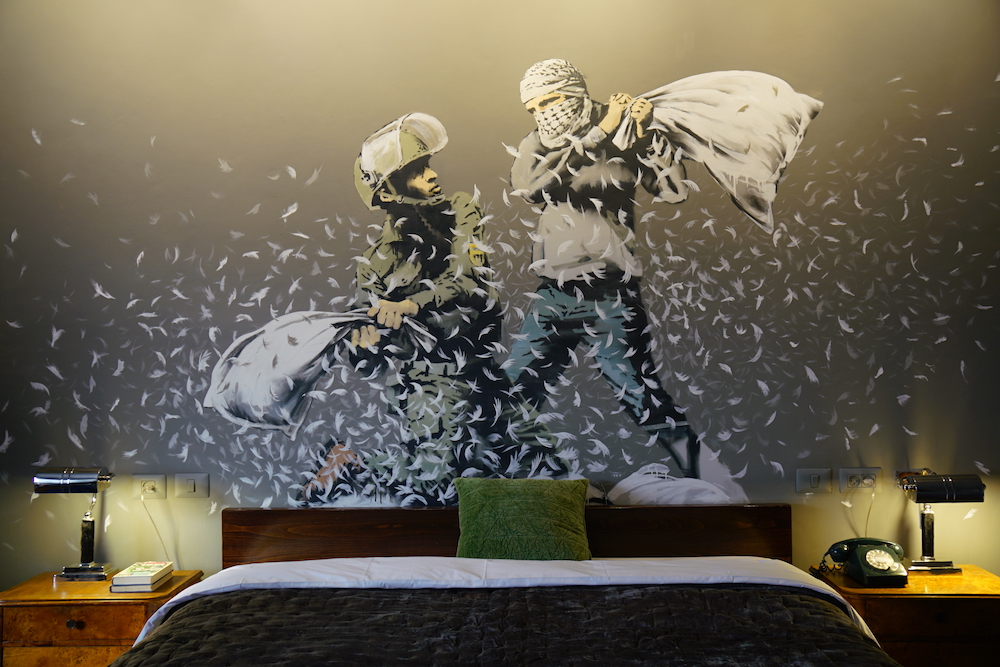
“Wherever people feel safe, they will be indifferent,”
I’m not sure why the Bristolian artist has such a bee in his bonnet over Israel and Palestine, but occupation has preoccupied his work for some time and it’s been good for him. In 2005 and 2007 he painted the wall in Bethlehem to similar media acclaim and raised his status to serious political artist rather than stencil vandal. But this is a different beast and I couldn’t help feeling that the Walled Off is a passive (and commercial) experience of an occupation that’s active in front of it. It provides distance and relief from the heat and tension of the reality outside, where a local warned my Israeli partner not to speak Hebrew, and where many Palestinians cannot travel outside of their city without special permits. Who is the audience for Banksy? What are they supposed to feel? Is this really what’s needed? Ultimately, the hotel seems more interested in the British involvement and influence in Palestine, but without really incriminating the Brits. The artist impugns Israel’s government in the current state of things, but not the UK’s.
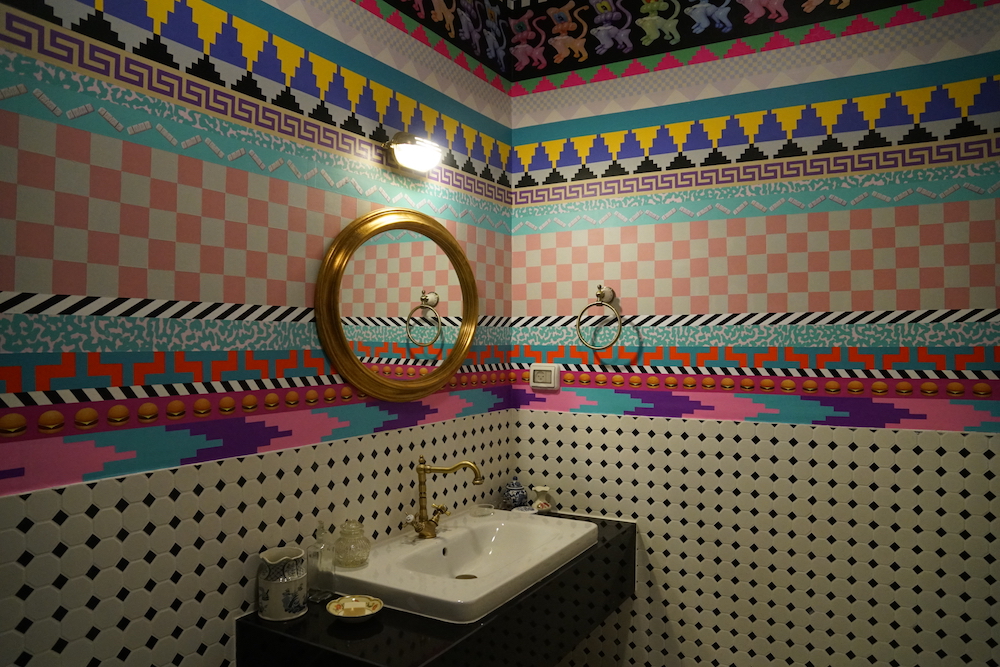
“Wherever people feel safe, they will be indifferent,” Susan Sontag wrote in Regarding the Pain of Others, her searing analysis of the relationship between war and its spectators. The problem with Bansky’s hotel is that it is too safe—and the Victoria sponge tastes too good. Sometimes standing back and thinking is a good thing, but no one started a revolution after eating a scone.
